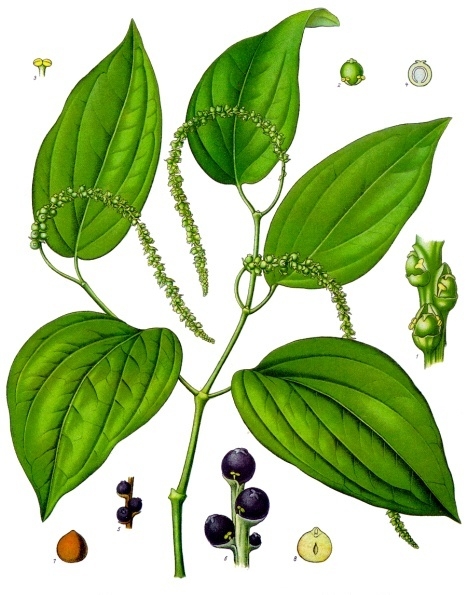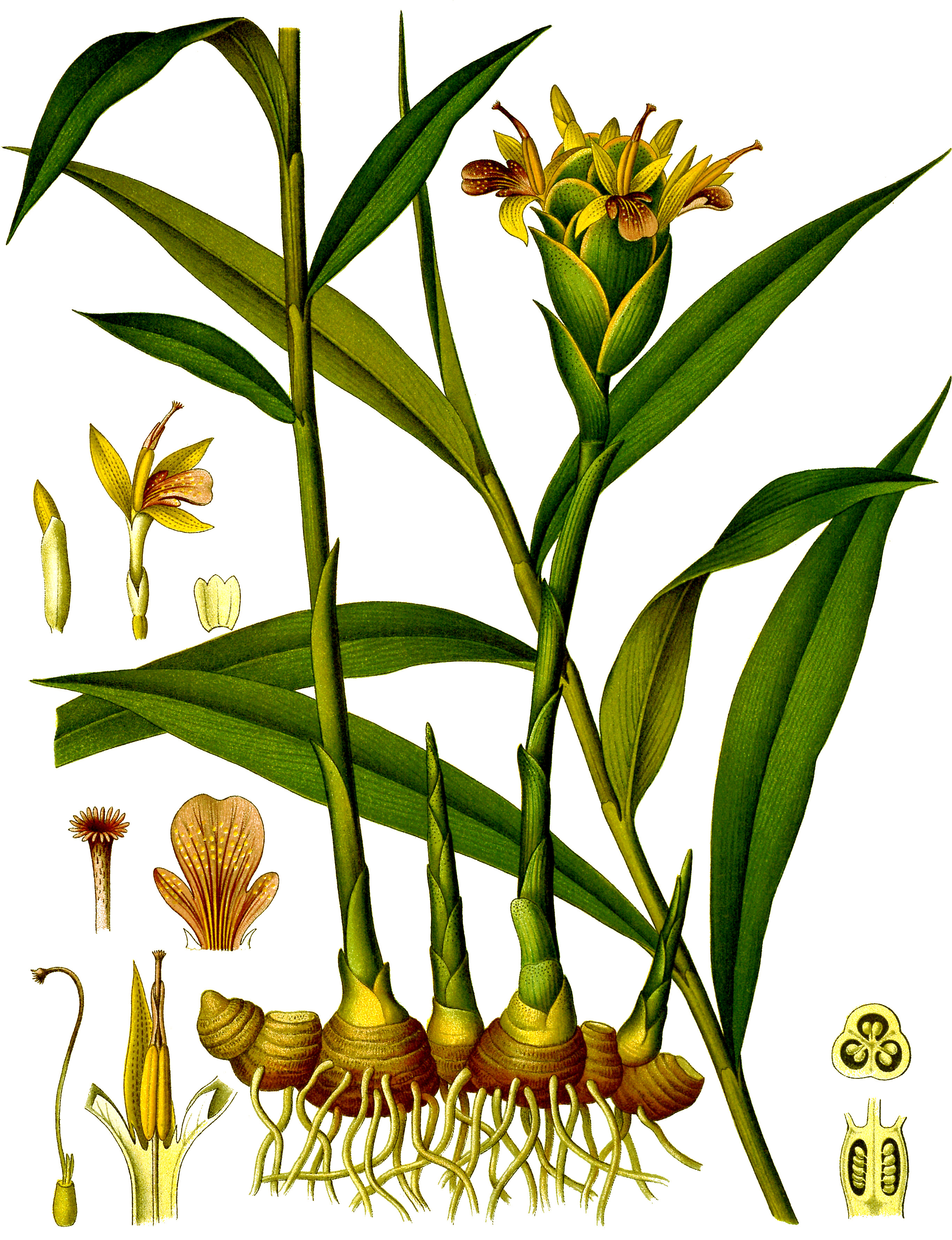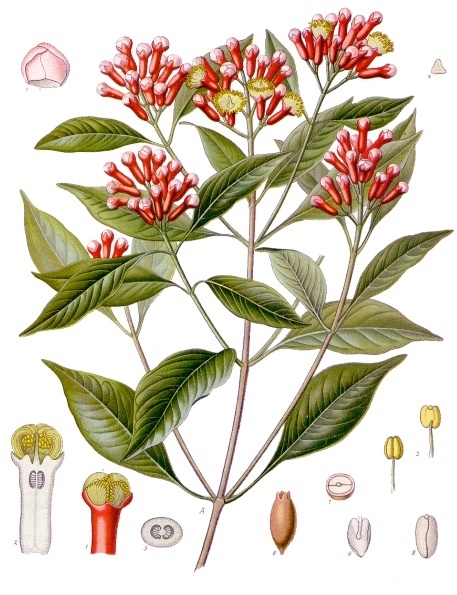Indian Institute of Spices Research on:
[Wikipedia]
[Google]
[Amazon]
The Indian Institute of Spices Research (IISR) is an autonomous organization engaged in agricultural research related to








 ICAR, in 1971, launched a project, ''All India Coordinated Spices and Cashew Improvement Project (AICSCIP)'' at Central Plantation Crops Research Institute (CPCRI) at Kasaragod, Kerala to initiate research activities for the development of spice crops. Later, the project was upgraded as a Regional station and the base was shifted to Kozhikode in 1975. In 1986, ICAR merged the station with Cardamom Research Centre of CPCRI located at Appangala,
ICAR, in 1971, launched a project, ''All India Coordinated Spices and Cashew Improvement Project (AICSCIP)'' at Central Plantation Crops Research Institute (CPCRI) at Kasaragod, Kerala to initiate research activities for the development of spice crops. Later, the project was upgraded as a Regional station and the base was shifted to Kozhikode in 1975. In 1986, ICAR merged the station with Cardamom Research Centre of CPCRI located at Appangala,
 Ten crops have been brought under the mandate of the Indian Institute of Spices Research.
# Garcinia (''Garcinia gummi-gutta'')
# Black pepper (''Piper nigrum'')
# Ginger (''Zingiber officinale'')
# Clove (''Syzygium aromaticum'')
# Cardamom (''Elettaria cardamomum')
# Nutmeg (''Myristica fragrans'')
# Turmeric (''Curcuma longa'')
# Cinnamon (''Cinnamomum verum'')
# Paprika (''Capsicum annuum'')
# Vanilla (''Vanilla planifolia'')
Ten crops have been brought under the mandate of the Indian Institute of Spices Research.
# Garcinia (''Garcinia gummi-gutta'')
# Black pepper (''Piper nigrum'')
# Ginger (''Zingiber officinale'')
# Clove (''Syzygium aromaticum'')
# Cardamom (''Elettaria cardamomum')
# Nutmeg (''Myristica fragrans'')
# Turmeric (''Curcuma longa'')
# Cinnamon (''Cinnamomum verum'')
# Paprika (''Capsicum annuum'')
# Vanilla (''Vanilla planifolia'')
Recommended technologies for commercial production of spices
/ref>
Official IISR channel on YouTube
on ICAR web site
Krishi Vigyan Kendra web site
Profile
Profile on BTISN, Government of India
Bioinformatics Centre
All India Coordinated Research Project on Spices (AICRPS) web site
{{authority control Indian Council of Agricultural Research Agricultural research institutes in India Agricultural research stations in Kerala 1975 establishments in Kerala Educational institutions established in 1975 Education in Kozhikode Indian spices
spices
A spice is a seed, fruit, root, bark, or other plant substance primarily used for flavoring or coloring food. Spices are distinguished from herbs, which are the leaves, flowers, or stems of plants used for flavoring or as a garnish. Spices are ...
in India. The institute has its headquarters in Moozhikkal, Silver Hills, Kozhikode
Kozhikode (), also known in English as Calicut, is a city along the Malabar Coast in the state of Kerala in India. It has a corporation limit population of 609,224 and a metropolitan population of more than 2 million, making it the second l ...
, Kerala and is a subsidiary of Indian Council of Agricultural Research
The Indian Council of Agricultural Research (ICAR) is an autonomous body responsible for co-ordinating agricultural education and research in India. It reports to the Department of Agricultural Research and Education, Ministry of Agriculture. Th ...
(ICAR), New Delhi
New Delhi (, , ''Naī Dillī'') is the capital of India and a part of the National Capital Territory of Delhi (NCT). New Delhi is the seat of all three branches of the government of India, hosting the Rashtrapati Bhavan, Parliament Ho ...
, under the Ministry of Agriculture, India.
History








Karnataka
Karnataka (; ISO: , , also known as Karunāḍu) is a state in the southwestern region of India. It was formed on 1 November 1956, with the passage of the States Reorganisation Act. Originally known as Mysore State , it was renamed ''Karnat ...
under the name, National Research Centre for Spices (NRCS). NRCS was further upgraded in 1995 as the Indian Institute of Spices Research.
Mandate
IISR was formed with a five-fold mandate : Target group : Farmers & Planters Mandate : To extend services and technologies to conserve genetic resources ofspices
A spice is a seed, fruit, root, bark, or other plant substance primarily used for flavoring or coloring food. Spices are distinguished from herbs, which are the leaves, flowers, or stems of plants used for flavoring or as a garnish. Spices are ...
as well as soil, water and air of spices agro ecosystems
An ecosystem (or ecological system) consists of all the organisms and the physical environment with which they interact. These biotic and abiotic components are linked together through nutrient cycles and energy flows. Energy enters the syst ...
.
Programs :
* Collection, conservation, characterization and cataloguing of germplasm
Germplasm are living genetic resources such as seeds or tissues that are maintained for the purpose of animal and plant breeding, preservation, and other research uses. These resources may take the form of seed collections stored in seed banks, t ...
of spice crops for yield and other economically important characters.
* System approach for sustainable production of spices.
Target group : Farmers, Planters & Industries
Mandate : To develop high yielding and high quality spice varieties and sustainable production and protection systems using traditional and non-traditional techniques and novel biotechnological
Biotechnology is the integration of natural sciences and engineering sciences in order to achieve the application of organisms, cells, parts thereof and molecular analogues for products and services. The term ''biotechnology'' was first used ...
approaches.
Programs :
* Breeding improved varieties of spice crops for yield, quality, drought and resistance to pests and diseases through conventional and molecular approaches.
* Identification, characterization and development of diagnostics
Diagnosis is the identification of the nature and cause of a certain phenomenon. Diagnosis is used in many different disciplines, with variations in the use of logic, analytics, and experience, to determine "cause and effect". In systems engineer ...
against pests, pathogens
In biology, a pathogen ( el, πάθος, "suffering", "passion" and , "producer of") in the oldest and broadest sense, is any organism or agent that can produce disease. A pathogen may also be referred to as an infectious agent, or simply a ger ...
nematodes of spice crops.
* Developing integrated pest and disease management strategies in spice crops.
* Systems approach for sustainable production of spices.
* Production of nucleus planting materials of improved varieties of spice crops.
Target group : Farmers, Planters & Industries
Mandate : To develop post harvest technologies of spices with emphasis on product development and product diversification for domestic and export purposes.
Programs :
* Value addition and post harvest processing of spices
* Investigations on nutraceuticals
A nutraceutical or bioceutical is a pharmaceutical alternative which claims physiological benefits. In the US, "nutraceuticals" are largely unregulated, as they exist in the same category as dietary supplements and food additives by the FDA, und ...
and pharmacokinetics aspects of spices
Target group : Farmers, Planters, Researchers & Development Agencies
Mandate : To act as a centre for training in research methodology and technology upgradation of spices and to coordinate national research projects.
Programs :
* Extension and training
* Developing customized software and expert systems on spices
Target group : Farmers, Planters & Policy makers
Mandate : To monitor the adoption of new and existing technologies to make sure that research is targeted to the needs of the farming community.
Programs :
* Economics, Statistics and modeling
* Extension and training
Service profile
The service spectrum of IISR spreads over three areas:Research
The Institute provides research facilities related to spice crops, both Institute funded and externally funded. The objectives of the research programs span over: * Collection, conservation, evaluation and cataloging ofgermplasm
Germplasm are living genetic resources such as seeds or tissues that are maintained for the purpose of animal and plant breeding, preservation, and other research uses. These resources may take the form of seed collections stored in seed banks, t ...
.
* Development of varieties of high yield, quality and resistance to biotic and abiotic
In biology and ecology, abiotic components or abiotic factors are non-living chemical and physical parts of the environment that affect living organisms and the functioning of ecosystems. Abiotic factors and the phenomena associated with them under ...
stresses through conventional and biotechnological
Biotechnology is the integration of natural sciences and engineering sciences in order to achieve the application of organisms, cells, parts thereof and molecular analogues for products and services. The term ''biotechnology'' was first used ...
approaches.
* Standardizing propagation methods to ensure large scale production and distribution of high yielding genotypes
The genotype of an organism is its complete set of genetic material. Genotype can also be used to refer to the alleles or variants an individual carries in a particular gene or genetic location. The number of alleles an individual can have in a ...
* Development of agrotechniques for increasing production and productivity.
* Integrated pest and disease management.
* Post harvest technology
* Socio-economic aspects of cultivation, marketing and information dissemination in spices.
* Investigation on nutraceuticals
A nutraceutical or bioceutical is a pharmaceutical alternative which claims physiological benefits. In the US, "nutraceuticals" are largely unregulated, as they exist in the same category as dietary supplements and food additives by the FDA, und ...
and pharmacokinetics aspects of spices.
Education Corner
IISR provides facilities for research and project based education at Masters and PhD levels. PhD Programme: Indian Institute of Spices Research is affiliated toMangalore University
Mangalore University commonly known as, MU is a public university in Konaje, Mangaluru, Karnataka, India. In 2021, National Assessment and Accreditation Council (NAAC) awarded Mangalore University 'B' grade.
History
Mangalore University was e ...
, University of Kerala
University of Kerala, formerly the University of Travancore, is a state-run public university located in Thiruvananthapuram, the state capital of Kerala, India. It was established in 1937 by a promulgation of the Maharajah of Travancore, Chit ...
, Kerala Agricultural University
Kerala Agricultural University (KAU) is a state university for agricultural education, recognised as a State Agricultural University (SAU) by the Indian Council of Agricultural Research (ICAR). It is situated in Vellanikkara, Kerala, India. ...
, Acharya Nagarjuna University and Kannur University
Kannur University is a multi-campus public university established in 1996 to provide development of higher education in Kasaragod, Kannur, Wayanad districts of Kerala, India. It serves the region of North Malabar. It was established after the ...
and offers doctoral research programs in various subjects:
* Biochemistry
Biochemistry or biological chemistry is the study of chemical processes within and relating to living organisms. A sub-discipline of both chemistry and biology, biochemistry may be divided into three fields: structural biology, enzymology and ...
* Bioinformatics
* Biotechnology
Biotechnology is the integration of natural sciences and engineering sciences in order to achieve the application of organisms, cells, parts thereof and molecular analogues for products and services. The term ''biotechnology'' was first used ...
* Botany
Botany, also called , plant biology or phytology, is the science of plant life and a branch of biology. A botanist, plant scientist or phytologist is a scientist who specialises in this field. The term "botany" comes from the Ancient Greek w ...
* Entomology
* Genetics
Genetics is the study of genes, genetic variation, and heredity in organisms.Hartl D, Jones E (2005) It is an important branch in biology because heredity is vital to organisms' evolution. Gregor Mendel, a Moravian Augustinian friar wor ...
& Plant Breeding
* Geo-informatics
Geoinformatics is the science and the technology which develops and uses information science infrastructure to address the problems of geography, cartography, geosciences and related branches of science and engineering, such as Land Surveying.
O ...
* Horticulture
Horticulture is the branch of agriculture that deals with the art, science, technology, and business of plant cultivation. It includes the cultivation of fruits, vegetables, nuts, seeds, herbs, sprouts, mushrooms, algae, flowers, seaweeds and no ...
* Microbiology
* Hematology
* Organic Chemistry
Organic chemistry is a subdiscipline within chemistry involving the scientific study of the structure, properties, and reactions of organic compounds and organic materials, i.e., matter in its various forms that contain carbon atoms.Clayden, ...
* Plant Pathology
Plant pathology (also phytopathology) is the scientific study of diseases in plants caused by pathogens (infectious organisms) and environmental conditions (physiological factors). Organisms that cause infectious disease include fungi, oomy ...
* Plant Physiology
* Soil Chemistry
Soil chemistry is the study of the chemical characteristics of soil. Soil chemistry is affected by mineral composition, organic matter and environmental factors. In the early 1850s a consulting chemist to the Royal Agricultural Society in England ...
MSc/MTech Project: IISR offers a platform for project work for the students of MSc/MTech
A Master of Engineering (abbreviated MEng, M.E. or M.Eng.) is either an academic or professional master's degree in the field of engineering.
International variations
Australia
In Australia, the Master of Engineering degree is a research deg ...
.
MPhil Thesis Work: MPhil programme students can undertake the thesis work under any of the scientists of the institute.
Post MSc/MTech Training: MSc/MTech holders can join for ''Post MSc/MTech Training'' under any of the scientists of the institute.
Farmers' Corner
IISR has, from time to time, organized projects for the development of spices farming. The All India Coordinated Research Project on Spices (AICRPS) is one such project. Further, IISR has prepared a knowledge base for the farmers, consisting of : * Package of Practices: cultivation practices recommended for different spices available as pdf and html versions. * Pamphlets in Malayalam * Planting Materials: Availability, cost of different planting materials. * Spice Varieties: Information on major spice varieties released from the institute. * Success Stories: Proven technologies of the institute.Crops profile
 Ten crops have been brought under the mandate of the Indian Institute of Spices Research.
# Garcinia (''Garcinia gummi-gutta'')
# Black pepper (''Piper nigrum'')
# Ginger (''Zingiber officinale'')
# Clove (''Syzygium aromaticum'')
# Cardamom (''Elettaria cardamomum')
# Nutmeg (''Myristica fragrans'')
# Turmeric (''Curcuma longa'')
# Cinnamon (''Cinnamomum verum'')
# Paprika (''Capsicum annuum'')
# Vanilla (''Vanilla planifolia'')
Ten crops have been brought under the mandate of the Indian Institute of Spices Research.
# Garcinia (''Garcinia gummi-gutta'')
# Black pepper (''Piper nigrum'')
# Ginger (''Zingiber officinale'')
# Clove (''Syzygium aromaticum'')
# Cardamom (''Elettaria cardamomum')
# Nutmeg (''Myristica fragrans'')
# Turmeric (''Curcuma longa'')
# Cinnamon (''Cinnamomum verum'')
# Paprika (''Capsicum annuum'')
# Vanilla (''Vanilla planifolia'')
Facilities
Laboratories and equipment
IISR has a range of full-fledged laboratories: CentralizedMolecular Biology
Molecular biology is the branch of biology that seeks to understand the molecular basis of biological activity in and between cells, including biomolecular synthesis, modification, mechanisms, and interactions. The study of chemical and physi ...
facility: A centralized laboratory with Equipments such as PCR systems, electrophoresis units, gel documentation systems, particle delivery system, transilluminators, Protein Profile Probe, Cryo- preservation unit etc.
Centralized Biochemistry laboratory: For the quality evaluation, studies on nutraceuticals
A nutraceutical or bioceutical is a pharmaceutical alternative which claims physiological benefits. In the US, "nutraceuticals" are largely unregulated, as they exist in the same category as dietary supplements and food additives by the FDA, und ...
, plant physiology and biochemical studies equipped with HPLC, gas chromatograph
Gas chromatography (GC) is a common type of chromatography used in analytical chemistry for separating and analyzing compounds that can be vaporized without decomposition. Typical uses of GC include testing the purity of a particular substance, ...
, HPTLC, refractometer
A refractometer is a laboratory or field device for the measurement of an index of refraction ( refractometry). The index of refraction is calculated from the observed refraction angle using Snell's law. For mixtures, the index of refraction the ...
, moisture analyzer, Cylotec sample mill, freeze drier, vacuum concentrator, chlorophyll flurometer, plant canopy analyzer, Photosynthetic system, plant growth chamber etc.
Centralized Soil Chemistry lab: A state of art of Soil Chemistry for soil and nutrient profile studies. Atomic absorption spectrophotometer, nitrogen analyzer, ion meter etc. are available here.
Centralized Plant Protection lab: An advanced Plant Protection lab with different types of microscopes with image analyzing systems, thermal cyclers, deep freezers, ultra centrifuges
A centrifuge is a device that uses centrifugal force to separate various components of a fluid. This is achieved by spinning the fluid at high speed within a container, thereby separating fluids of different densities (e.g. cream from milk) or l ...
, Elisa reader with washer & printer, incubated shakers, walk- in- cold room etc.
GCMS facility: For finger printing of aroma compounds in spices with all the latest libraries.
Biocontrol laboratory: A modern biocontrol
Biological control or biocontrol is a method of controlling pests, such as insects, mites, weeds, and plant diseases, using other organisms. It relies on predation, parasitism, herbivory, or other natural mechanisms, but typically also in ...
laboratory for mass multiplication of biocontrol agents and natural enemies with fermentors, shakers etc.
Library and information
IISR has an extensive facility called the National Informatics Centre on Spices (NICS) which maintains global scientific literature, e-journals, offline and online databases, Internet connectivity and data storage facility. The library is automated with LIBSYS software. They also maintain a web portal, ''SpicE- Library'' and has an institutional repository named ‘D-Spice’ has been developed using the Open Software D- Space. The library has a collection of 4311 books, 3451 bound volumes, 2305 reprints, 906 technical reports 127 theses and 153 project reports. Currently the library is subscribing to 36 foreign journals including 14 online journals and 84 Indian Journals. It has access to online databases such as CeRA, CAB Abstracts and Academic Online.DUS Testing Facility
IISR, in coordination with PPV&FR Authority, New Delhi, has set up a DUS testing laboratory which facilitates testing crop varieties for distinctiveness, uniqueness and stability (DUS).Tissue Culture Accreditation Facility
Another service provided by IISR is the certification of tissue cultured spices plants. IISR has a laboratory for this purpose where spices are tested for virus infection and genetic fidelity under this facility. The other facilities include a Bioinformatics Centre for seamless integration of life sciences and information science, a Geographic Information System (GIS) centre for GIS information,remote sensing
Remote sensing is the acquisition of information about an object or phenomenon without making physical contact with the object, in contrast to in situ or on-site observation. The term is applied especially to acquiring information about Eart ...
and 3D modelling
In 3D computer graphics, 3D modeling is the process of developing a mathematical coordinate-based representation of any surface of an object (inanimate or living) in three dimensions via specialized software by manipulating edges, vertices, an ...
, a fully air conditioned Conference Hall which can accommodate 120 people and a Guest House.
Agricultural Technology Information Centre (ATIC)
The ATIC is an IISR associate, serving as a single window for technology dissemination. The major activities of ATIC are: * Distribution of quality planting material * Production and distribution of printed literature * Farm advisory services including crop diagnostic services * Information dissemination through multimedia, video and interactive databases * Providing audio visual aid support to the institute activities * Organizing technology dissemination services like exhibitions, seminars to farmers and other users.Krishi Vigyan Kendra (KVK)
Krishi Vigyan Kendra was established in 1992 at Peruvannamuzhi village in Kozhikode as a subsidiary of the IISR. The principal objective was effective transfer of technology to the farming community. KVK is based at the IISR experimental farm in the village. The service spectrum of KVK includes: * Farm Advisory Services * Production and supply ofTrichoderma
''Trichoderma'' is a genus of fungi in the family Hypocreaceae that is present in all soils, where they are the most prevalent culturable fungi. Many species in this genus can be characterized as opportunistic avirulent plant symbionts. This ref ...
* Supply of improved breeds of chicks
* Plant and Animal Health Centre
Awards and recognitions
IISR was awarded the Outstanding ICAR Institution Awards in 1999, 2009 and 2021, and received the ICAR Best Annual Report Award for the year 1996–97. Further, many scientists of IISR have been recognized at various levels.Publications
IISR has published many books for the farmers on the various aspects of spices farming and maintenance. In addition, many papers prepared at IISR is in circulation as pamphlets and web content./ref>
See also
* Van Vigyan Kendra (VVK) Forest Science CentresReferences
External links
Official IISR channel on YouTube
on ICAR web site
Krishi Vigyan Kendra web site
Profile
Profile on BTISN, Government of India
Bioinformatics Centre
All India Coordinated Research Project on Spices (AICRPS) web site
{{authority control Indian Council of Agricultural Research Agricultural research institutes in India Agricultural research stations in Kerala 1975 establishments in Kerala Educational institutions established in 1975 Education in Kozhikode Indian spices